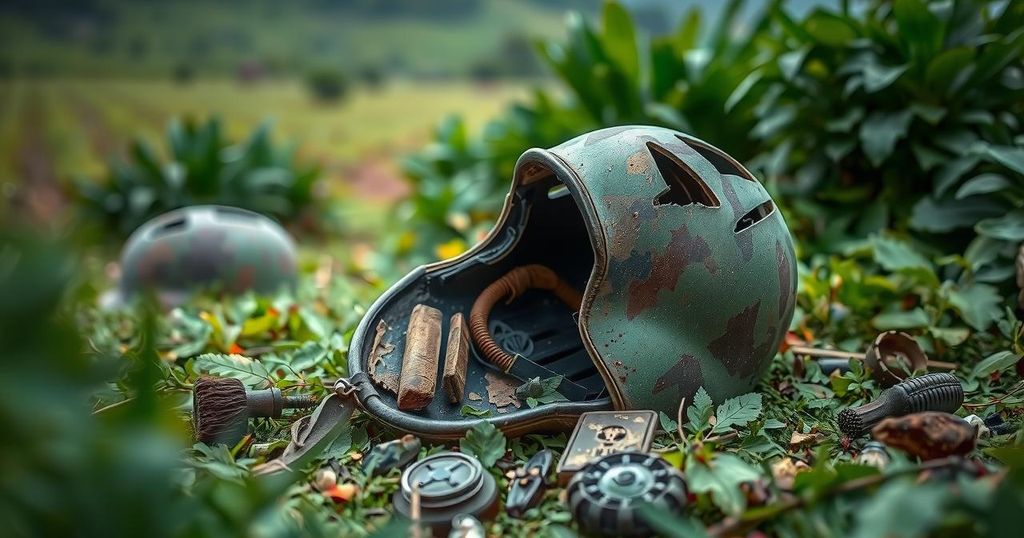Thirteen peacekeepers have been killed in the Democratic Republic of Congo amidst escalating violence involving M23 rebels. The UN is withdrawing non-essential personnel from Goma as fears of a humanitarian crisis grow, with international leaders urging for peace. The M23 group demands surrender from Congolese troops, while accusations against Rwanda persist regarding their support for the rebels.
Clashes between M23 rebels and peacekeeping forces in the Democratic Republic of Congo (DR Congo) have resulted in the deaths of thirteen soldiers. Among the fatalities are nine South African soldiers, supported in their efforts against the rebels near Goma, as well as three soldiers from Malawi and one from Uruguay. The UN is responding to the escalation of violence by evacuating non-essential personnel from Goma, a city with over one million residents, amidst calls for violence to cease.
French President Emmanuel Macron engaged with leaders in both DR Congo and Rwanda, emphasizing the urgent need for peace. Simultaneously, the UN Security Council convened early to address the dire situation. The M23 group has urged Congolese troops in Goma to surrender to prevent further bloodshed, following a recent violent episode that claimed the life of a Congolese military governor.
The European Union’s foreign policy chief has condemned Rwanda for supporting the M23 rebels while local leaders report substantial civilian casualties. The African Union’s mediator has called for an immediate end to the fighting to safeguard civilians, indicating a collective acknowledgment of the humanitarian crisis brought about by escalating tensions.
The humanitarian situation continues to deteriorate, with over 400,000 individuals displaced in 2023 alone. Reports indicate that fighting has resulted in significant civilian injuries, straining local healthcare resources. International communities, including the UK, France, and the US, have advised their citizens to evacuate Goma as the conflict shows no signs of abating.
Human Rights Watch has raised alarms regarding the increased dangers faced by civilians during the ongoing military confrontations. They have condemned actions from both the Congolese army and M23 rebels, marking a worrying escalation in violations against civilians. The UN has expressed concern that this ongoing conflict exacerbates the region’s humanitarian crisis, with millions at risk of deprivation and suffering.
Since 2021, M23 has expanded its control over resource-rich eastern DR Congo, leading to widespread displacement and unrest. Both DR Congo and the UN accuse Rwanda of backing the M23, a claim that the Rwandan authorities have neither confirmed nor denied. The group originated from a split in another rebel faction and initially aimed to protect the Tutsi population in eastern DR Congo, which has historically faced discrimination.
The ongoing conflict in the Democratic Republic of Congo has deep historical roots, particularly around the M23 rebel group, which emerged to defend the Tutsi community following years of persecution. The group asserts claims for autonomy and control over mineral-rich territories while facing accusations of utilizing violence to exploit resources. The recent escalation is marked by international responses, condemnations, and evacuations as humanitarian crises deepen amidst fighting between armed factions and peacekeeping forces.
In summary, the recent clashes in DR Congo underscore a tragic escalation in violence involving M23 rebels and peacekeeping forces, resulting in considerable loss of life and destabilizing the region further. International condemnation, humanitarian warnings, and urgent calls for an end to fighting emphasize the global concern surrounding the crisis. The M23’s increasing territorial control and the accusations against Rwanda highlight the complex geopolitical entanglements complicating prospects for peace.
Original Source: www.bbc.com






